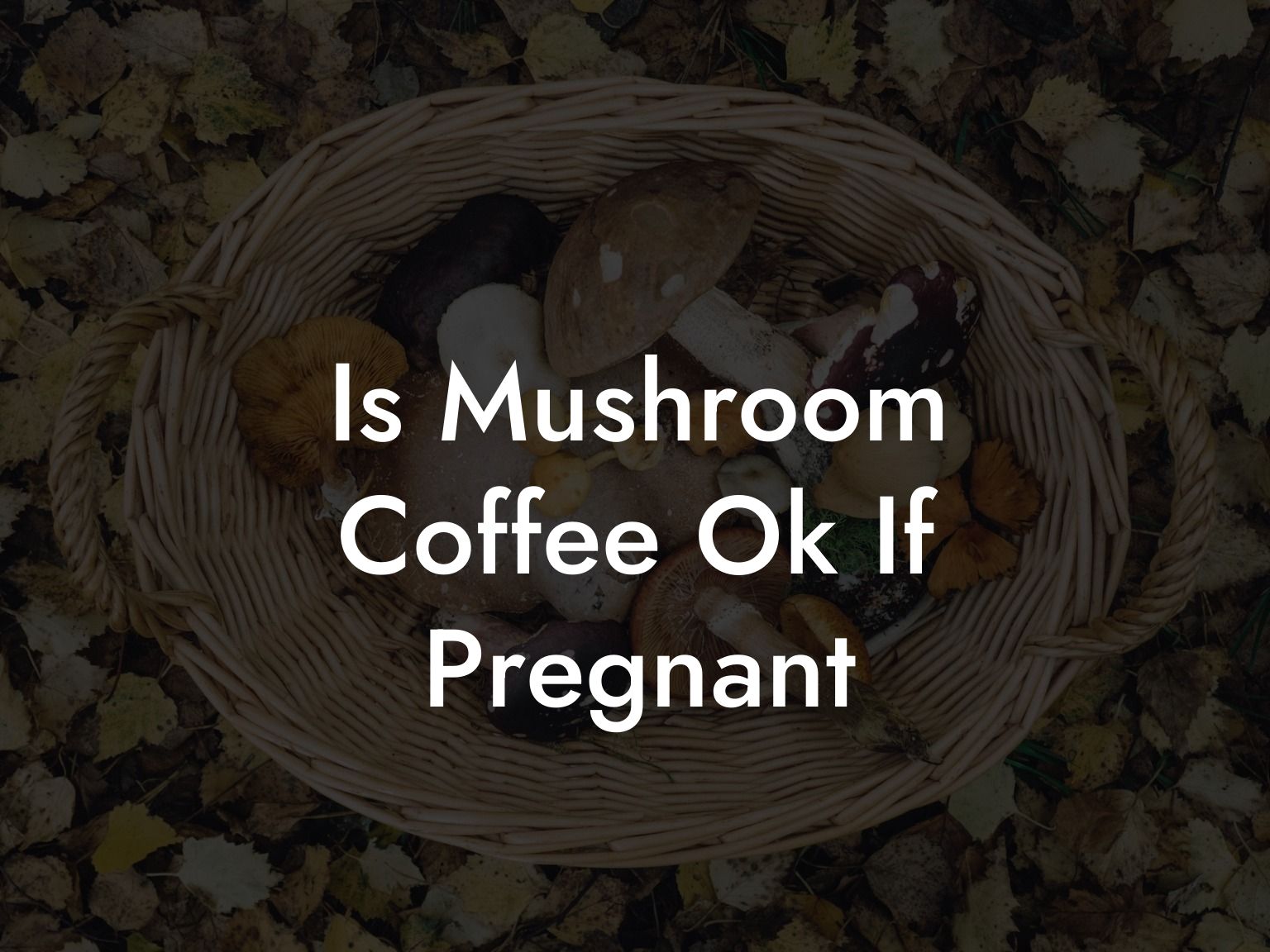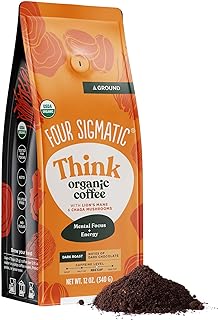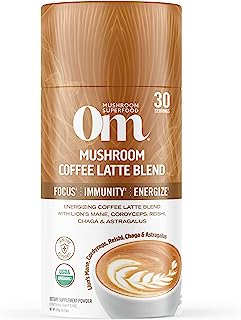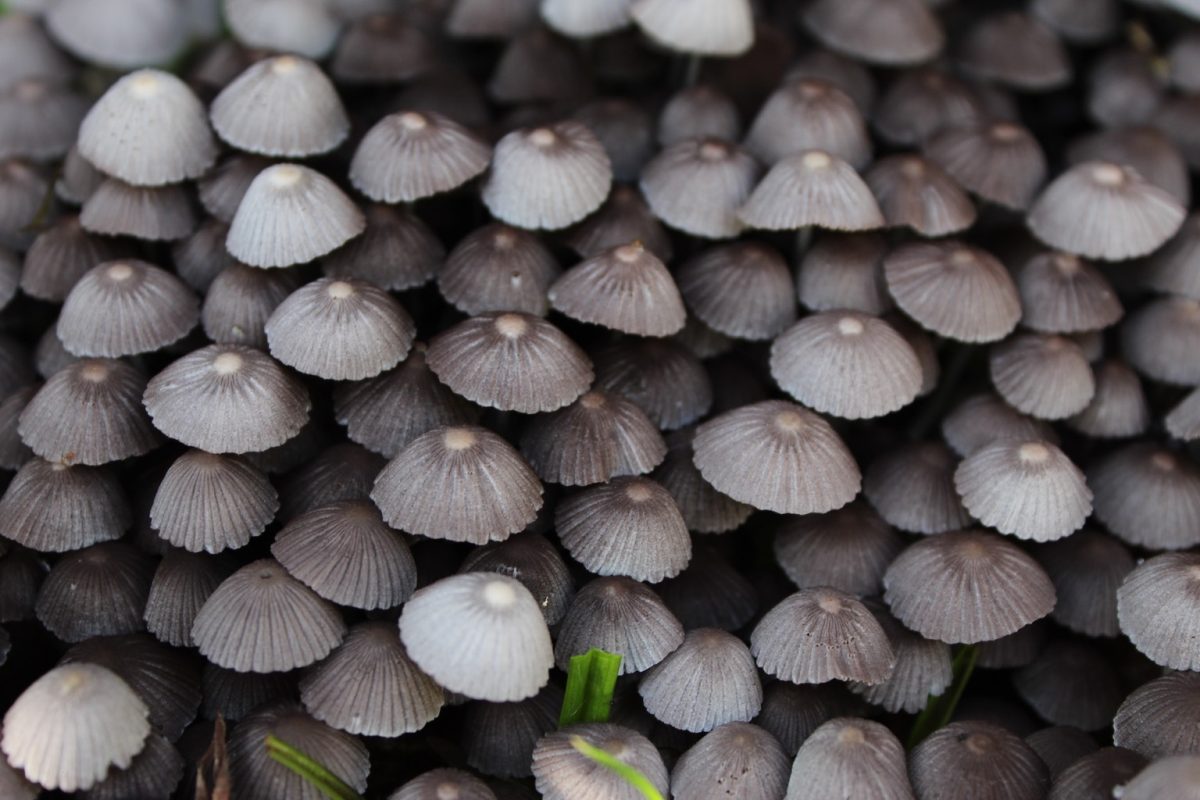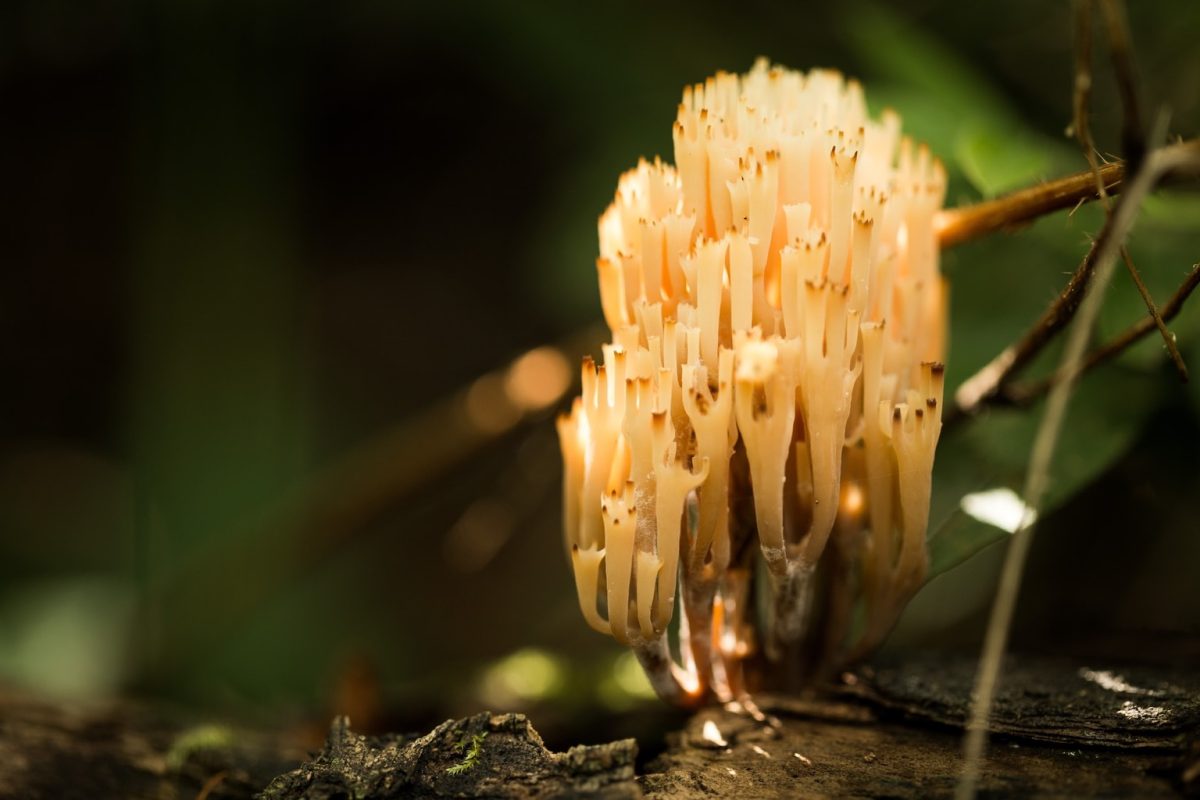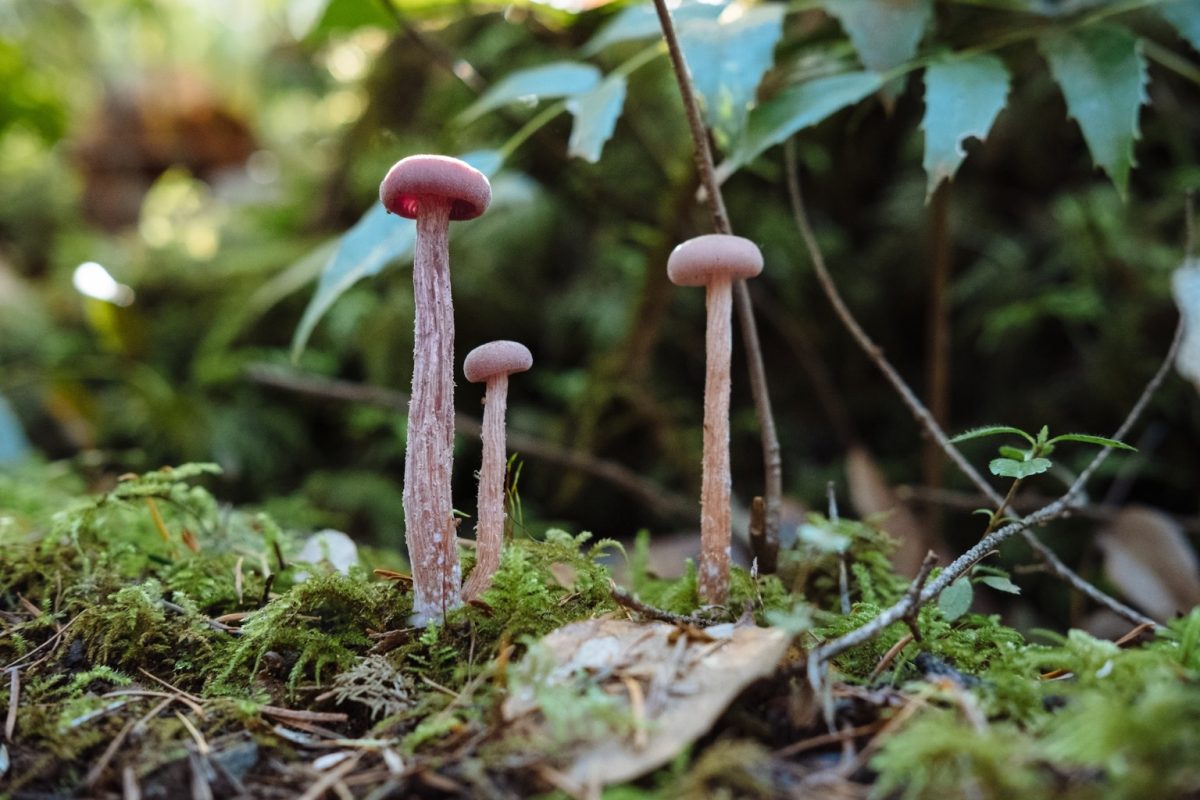Ever wondered if that trendy cup of mushroom coffee is a safe pick-up for your pregnancy journey? You’re not alone. With the explosion of wellness trends among Gen-Z and millennial moms-to-be, mushroom coffee has made headlines for its unique blend of caffeine and medicinal mushrooms. But as a savvy, health-conscious individual, you deserve a deep dive into its benefits, risks, and expert opinions. Let’s embark on this holistic exploration together, demystifying mushroom coffee and asking the million-dollar question: Is mushroom coffee ok if pregnant?
Quick Links to Useful Sections
- What Is Mushroom Coffee and Why Has It Gone Viral?
- The Nutritional Science Behind Medicinal Mushrooms
- Antioxidant Boost
- Immune Support
- Mental Clarity and Adaptogenic Benefits
- Decoding Caffeine: Mushroom Coffee vs. Regular Coffee During Pregnancy
- Potential Benefits of Mushroom Coffee During Pregnancy
- Concerns and Considerations: Is It Really Safe?
- Limited Research in Pregnant Populations
- Variability in Product Quality
- Caffeine Content
- Individual Sensitivities and Allergies
- Expert Opinions and Medical Guidelines on Mushroom Coffee in Pregnancy
- Medical Community Insights
- Nutritionists and Holistic Practitioners
- Understanding the Bioactive Compounds in Mushroom Coffee
- Beta-Glucans
- Triterpenes
- Ergothioneine
- User Experiences and Anecdotal Evidence
- Ana’s Story: The Cautious Sipper
- Jasmine’s Journey: Balancing Energy and Safety
- Real Talk: The Importance of Listening to Your Body
- Guidelines for Safe Consumption: How to Enjoy Mushroom Coffee Responsibly
- Consult Your Healthcare Provider
- Moderate Your Intake
- Choose Reputable Brands
- Track Your Body’s Response
- Listen to Your Body
- How Does Mushroom Coffee Compare to Other Alternative Beverages?
- Matcha Lattes
- Herbal Teas
- Coffee Alternatives like Chicory Coffee
- Resources and Community Support: Your Next Steps
- Integrating Mushroom Coffee into a Broader Wellness Lifestyle
- Addressing Common Myths and Misconceptions
- Myth 1: “If it’s natural, it must be safe.”
- Myth 2: “All mushroom coffees are created equal.”
- Myth 3: “Mushroom coffee has no side effects.”
- Integrative and Holistic Approaches: Merging Traditional Wisdom with Modern Research
- Common Questions About Mushroom Coffee and Pregnancy
- 1. Is it safe to drink mushroom coffee during pregnancy?
- 2. How much mushroom coffee is recommended for a pregnant woman?
- 3. Can the medicinal mushrooms in the coffee benefit my pregnancy?
- 4. Are there any side effects unique to mushroom coffee in pregnancy?
- 5. How do I know which mushroom coffee brand to trust?
- 6. Should I completely replace my regular coffee with mushroom coffee?
- Your Empowered Journey: Navigating Wellness with Confidence
What Is Mushroom Coffee and Why Has It Gone Viral?
Mushroom coffee is not your average cup of joe. Instead of solely relying on roasted coffee beans for that energizing jolt, it features a blend of gourmet coffee and medicinal mushrooms like chaga, lion’s mane, reishi, or cordyceps. These mushrooms have been celebrated for centuries in traditional Eastern medicine for their purported immune-boosting, anti-inflammatory, and antioxidant properties.
In recent years, this fusion has wooed the wellness community, especially among young adults who enjoy exploring alternative health solutions. The low-key caffeine boost combined with noted adaptogen properties has sparked curiosity, making it a hot topic on social media and wellness blogs alike.
For pregnant individuals, however, the conversation takes an interesting turn. The desire to maintain energy levels while ensuring a safe, health-conscious approach to pregnancy nutrition has prompted many to ask: Is mushroom coffee ok if pregnant?
In this guide, we’ll break down the science, expert opinions, and anecdotal experiences to help you navigate this trendy beverage choice during pregnancy.
Looking For The Best Mushroom Coffee? You'll Love These:
The Nutritional Science Behind Medicinal Mushrooms
At its core, mushroom coffee takes advantage of nutrient-packed mushrooms that have bioactive compounds known to support the immune system and overall health. Let’s dig into some of the superhero properties these mushrooms offer:
Antioxidant Boost
Many mushrooms, particularly chaga, are packed with antioxidants. These compounds can help combat oxidative stress, which is especially important during pregnancy when your body is working overtime. Antioxidants also play a role in supporting skin health and overall cellular function.
Immune Support
Reishi mushrooms have a reputation for supporting the immune system. During pregnancy, a robust immune system is crucial, and some studies suggest that reishi mushrooms might help enhance immune function by modulating immune responses.
Mental Clarity and Adaptogenic Benefits
Lion’s mane is acclaimed for its potential to support cognitive function and nerve health. For expectant mothers juggling work, life, and pregnancy, the promise of enhanced focus and mental clarity is certainly appealing.
While these benefits are fascinating, it’s important to remember that much of the research on medicinal mushrooms is still in early stages, especially in the context of pregnancy. As with many superfoods and adaptogens, moderation and professional guidance are key.
Decoding Caffeine: Mushroom Coffee vs. Regular Coffee During Pregnancy
When it comes to pregnancy, caffeine intake is a hot-button issue. Traditional guidelines recommend limiting caffeine to about 200 mg per day. So, how does mushroom coffee stack up?
Mushroom coffee is often touted as a milder alternative to regular coffee. The infusion of mushrooms can potentially help modulate the stimulating effects of caffeine, providing a smoother, more sustained energy boost without the notorious “jitters” associated with your typical cup.
However, the key here is that most mushroom coffee blends still contain varying degrees of caffeine. For pregnant individuals, understanding your source of caffeine, from both mushroom coffee and other dietary inputs, is essential.
Experts recommend that if you decide to enjoy mushroom coffee, ensure that your overall daily caffeine intake remains within safe limits. It might be helpful to track your consumption and consult with your healthcare professional to tailor advice specifically for your pregnancy.
Potential Benefits of Mushroom Coffee During Pregnancy
At first glance, the concept of mushroom coffee appears to be a win-win: you get your coffee fix along with additional health benefits. While robust clinical data on its use during pregnancy is limited, there are some theoretical benefits that might intrigue you:
- Sustained Energy: The combination of coffee’s caffeine and mushrooms’ adaptogens could offer a gentler, prolonged energy boost compared to regular coffee.
- Immune Support: With ingredients like reishi and chaga, mushroom coffee might help support your immune system during those crucial months.
- Reduced Inflammation: Some medicinal mushrooms have anti-inflammatory properties, which could be beneficial given the inflammatory shifts that occur during pregnancy.
- Digestive Ease: Mushroom coffee blends are often touted to be easier on your digestive system, a plus if you’re battling pregnancy-related sensitivity.
Despite these promising points, it is critical to understand that these benefits are mostly extrapolations from studies conducted in non-pregnant populations or in vitro. As such, pregnant women should approach any new dietary supplement or trend with cautious optimism.
Concerns and Considerations: Is It Really Safe?
With all the buzz, the most pressing query is: What are the potential risks? Here’s a breakdown of the key concerns regarding mushroom coffee during pregnancy:
Limited Research in Pregnant Populations
One of the biggest red flags is that there’s a relative scarcity of rigorous, large-scale studies exploring the safety of medicinal mushrooms for pregnant women. While early research is promising in many areas of health, pregnancy is a time when even small uncertainties can have amplified implications.
Variability in Product Quality
The wellness market is notorious for its varying standards, and mushroom coffee is no exception. Some products may contain contaminants or inconsistent levels of active compounds, which could inadvertently expose you to unknown risks.
Caffeine Content
As mentioned earlier, despite the adaptogenic mushrooms, the caffeine content remains a consideration. Pregnant women need to be mindful of their overall caffeine consumption to avoid potential complications such as low birth weight or other adverse effects.
Individual Sensitivities and Allergies
Just as with any food or supplement, there's always the risk of allergies or sensitivities. Some individuals might react to the unique compounds found in mushrooms, experiencing gastrointestinal disturbances, headaches, or other adverse reactions.
Given these concerns, it’s always a good idea to have an in-depth discussion with your healthcare provider before making mushroom coffee a regular part of your pregnancy diet.
Expert Opinions and Medical Guidelines on Mushroom Coffee in Pregnancy
When it comes to navigating pregnancy, the golden rule is to lean on scientific research and professional advice. Although mushroom coffee is celebrated in holistic circles, mainstream medical guidelines have yet to fully endorse its consumption during pregnancy. Here’s what some experts have to say:
Medical Community Insights
Many obstetricians advise caution when introducing any novel ingredient into your diet during pregnancy. The lack of long-term studies on medicinal mushrooms in pregnant populations raises enough red flags that most doctors will recommend erring on the side of caution.
A common sentiment among healthcare professionals is that while the ingredients in mushroom coffee may be safe in isolation, the combined effects, especially with caffeine, warrant a careful, personalized risk assessment.
Nutritionists and Holistic Practitioners
On the flip side, some nutritionists and holistic health experts note that many of the mushrooms used in these blends have been consumed in traditional diets for centuries. They argue that, in moderation, mushroom coffee could serve as a strategic ally in managing energy levels and promoting overall wellness.
However, even these practitioners generally recommend consulting with a healthcare provider to align any new dietary practices with your individual needs and pregnancy timeline.
Understanding the Bioactive Compounds in Mushroom Coffee
For those curious about why mushrooms are hailed as “superfoods,” it helps to understand the bioactive compounds they contain. Here, we unpack a few of the powerhouse components:
Beta-Glucans
Beta-glucans are a type of soluble fiber found in many medicinal mushrooms. They are celebrated for their immune-enhancing properties and ability to modulate the body’s inflammatory responses. In the world of pregnancy, where the immune system naturally shifts, beta-glucans might play a subtle supportive role.
Triterpenes
Reishi mushrooms, in particular, are rich in triterpenes, compounds that have been studied for their anti-inflammatory and anti-stress effects. For pregnant women facing the inevitable stressors of daily life and hormonal changes, triterpenes might offer a natural defense mechanism.
Ergothioneine
Another antioxidant found in certain mushrooms is ergothioneine. This potent molecule may help safeguard cells from oxidative damage, an appealing benefit given the increased metabolic demands during pregnancy.
Although these compounds have promising attributes, research specifically within pregnant cohorts remains limited. Therefore, while the biochemistry of mushroom coffee is fascinating, it underscores the importance of moderation and personalized medical advice.
User Experiences and Anecdotal Evidence
With all the scientific chatter, real-life experiences can provide a unique window into the effects of mushroom coffee during pregnancy. Here are a few anecdotal accounts from women who explored this trend:
Ana’s Story: The Cautious Sipper
Ana, a 32-year-old graphic designer, was intrigued by the promise of a smoother caffeine buzz. During her second trimester, she swapped out her regular coffee for a well-reviewed brand of mushroom coffee. “I felt like the usual crash never hit me as hard,” Ana recounts. “But I was extra mindful of how much I was drinking and made sure to chat with my OBGYN beforehand.” Her experience underscores the importance of moderation and professional guidance.
Jasmine’s Journey: Balancing Energy and Safety
Jasmine, an avid wellness enthusiast, was drawn to the holistic narrative of mushroom coffee. Experimenting with different blends, she found that some recipes worked better for her than others. “It was a trial-and-error process,” she says with a shrug. “I learned that not all mushroom coffees are created equal, some had a stronger, almost earthy aftertaste that I wasn’t fond of. But overall, when I stuck to a small cup in the morning, I noticed a balanced boost that helped me manage the mid-morning slump.”
Real Talk: The Importance of Listening to Your Body
Many women emphasize the importance of tuning in to their bodies. Even if mushroom coffee aligns with a holistic approach to wellness, each pregnancy is unique. Some women reported mild gastrointestinal discomfort or noticed shifts in energy levels, reinforcing that listening to your body and adjusting consumption is key.
These anecdotal stories remind us that while trends can be exciting, real-world experiences vary. They highlight the need for personalized decisions, balancing trendy wellness with medically sound practices.
Guidelines for Safe Consumption: How to Enjoy Mushroom Coffee Responsibly
If you’re leaning towards trying mushroom coffee during your pregnancy, here’s a roadmap to help you enjoy it responsibly:
Consult Your Healthcare Provider
This can’t be stressed enough. Before making any dietary changes or adding a new supplement to your regimen, discuss it with your doctor or midwife. They can provide insights based on your specific health profile.
Moderate Your Intake
Since mushroom coffee still contains caffeine, aim to stick within the recommended daily caffeine limits (usually no more than 200 mg per day during pregnancy). This means you might want to limit it to one small cup in the morning or alternate it with caffeine-free beverages.
Choose Reputable Brands
As with any trendy wellness product, quality matters. Look for brands that adhere to strict quality control and transparency about ingredients. Prioritize products that offer third-party testing and clear labeling about mushroom species and caffeine content.
Track Your Body’s Response
Keep a simple journal of your experiences. Note any changes in energy, mood, or digestion. If you notice anything unusual, consider adjusting your intake or discussing it with your healthcare provider.
Listen to Your Body
Every person’s pregnancy journey is unique. What works for one might not work for another. If you ever experience discomfort or adverse effects, it might be a sign to pause or steer clear of the beverage.
By following these guidelines, you can make an informed decision that honors both your wellness goals and the health of your baby.
How Does Mushroom Coffee Compare to Other Alternative Beverages?
In a world where personalized wellness drives our choices, mushroom coffee finds itself in a competitive lane with other alternative beverages. Let’s explore how it stacks up:
Matcha Lattes
Like mushroom coffee, matcha has gained a cult following among health-conscious individuals. Rich in antioxidants and featuring a unique caffeine profile, matcha also promotes sustained energy without the crash. However, matcha is derived from tea leaves and offers a different spectrum of bioactive compounds.
Herbal Teas
Herbal teas, such as ginger or peppermint tea, are often the go-to for pregnant women seeking soothing beverages. They’re typically caffeine-free and focus on calming the digestive system. Mushroom coffee, by contrast, provides a slight caffeine kick along with its noted health benefits.
Coffee Alternatives like Chicory Coffee
Chicory coffee, made from roasted chicory root, is another popular caffeine-free alternative. It’s appreciated for its rich, deep flavor reminiscent of coffee. While chicory coffee is a great choice for those looking to avoid caffeine, mushroom coffee carves out its niche by offering both caffeine and the potential benefits of medicinal mushrooms.
Ultimately, your choice will depend on your personal health priorities, taste preferences, and any restrictions advised by your healthcare provider. Whether you lean towards matcha, herbal teas, or mushroom coffee, the key is to select what aligns best with your overall wellness goals.
Resources and Community Support: Your Next Steps
Navigating the world of alternative wellness during pregnancy can be both exciting and overwhelming. Thankfully, there are many resources and communities out there to support you on this journey.
Online Forums and Social Media Groups – Join pregnancy, wellness, or coffee enthusiast groups on platforms like Facebook, Reddit, or Instagram. These communities not only share experiences and recommendations but also keep you updated on the latest research and trends.
Consulting a Nutritionist or Holistic Health Coach – If you’re considering integrating mushroom coffee into your diet, consulting with a nutritionist or health coach who understands the nuances of pregnancy nutrition can be invaluable. They can help craft a balanced plan that aligns with your individual needs.
Reliable Medical Websites – Websites such as the American Pregnancy Association, Mayo Clinic, or your local health department offer trustworthy information about caffeine intake, nutritional guidelines, and more. Staying informed from credible sources is key.
Wellness Blogs and Podcasts – Many health influencers and professionals share their experiences and insights on platforms like YouTube or personal blogs. These resources can provide a more personalized look at balancing trending wellness practices with modern pregnancy care.
Remember, your journey is unique. Leveraging available resources, seeking professional guidance, and engaging with supportive communities will empower you to make informed choices about mushroom coffee and your overall wellness during pregnancy.
Integrating Mushroom Coffee into a Broader Wellness Lifestyle
If you’ve decided to give mushroom coffee a try or are simply curious about how it fits into a holistic lifestyle, it’s important to view it as just one piece of the puzzle. A balanced, vibrant lifestyle during pregnancy merges careful dietary choices, mindfulness, and regular physical activity.
Mindfulness and Self-Care: Along with any exciting beverage trend, don’t forget to incorporate mindfulness practices. Whether it’s a morning meditation, some gentle prenatal yoga, or simply a quiet moment with your favorite book, nurturing your mental well-being is just as important as what you drink.
Balanced Nutrition: No magical elixir can replace a wholesome, nutrient-rich diet. Complement your beverage choices with a variety of fruits, vegetables, lean proteins, and whole grains. Every spoonful and sip contributes to your overall health and that of your baby.
Physical Activity: Engage in low-impact exercises like walking, swimming, or prenatal Pilates. Exercise not only boosts energy levels but also supports overall pregnancy wellness.
Stay Informed: Trends in wellness are constantly evolving. Keep an eye on new research about medicinal mushrooms, caffeine, and pregnancy safety guidelines. Your informed and proactive approach will help you make the best choices for your unique situation.
By integrating these practices into your daily routine, mushroom coffee can serve as a flavorful supplement to your broader wellness strategy, rather than the sole hero of your health regimen.
Addressing Common Myths and Misconceptions
As with any popular health trend, a fair share of myths and misconceptions surround mushroom coffee, especially when it comes to pregnancy. Let’s debunk some of the most common ones:
Myth 1: “If it’s natural, it must be safe.”
While natural ingredients can offer benefits, natural does not automatically equate to safe for every individual, particularly in pregnancy. The effects of certain compounds can vary depending on dosage, quality, and individual sensitivity.
Myth 2: “All mushroom coffees are created equal.”
Not all mushroom coffee blends contain the same concentrations of mushrooms, coffee, or additional ingredients. Quality control, sourcing, and production methods vary widely, so be sure to choose brands with transparency and verified standards.
Myth 3: “Mushroom coffee has no side effects.”
Although many users experience only pleasant effects, some may encounter mild digestive discomfort or sensitivity to caffeine. As with any dietary supplement, individual reactions differ, and it’s important to monitor your body’s response.
Dispelling these myths is crucial for making an informed decision about whether mushroom coffee aligns with your pregnancy wellness strategy.
Integrative and Holistic Approaches: Merging Traditional Wisdom with Modern Research
The philosophy behind mushroom coffee is to meld traditional, natural remedies with modern-day nutritional science. This integrative approach appeals to many pregnant individuals who seek to balance energy, wellness, and mindfulness.
Traditional Eastern practices have long recognized mushrooms for their healing properties. Now, as modern research begins to investigate these benefits, there’s a growing interest in harnessing these age-old remedies in a contemporary format.
Whether you’re a fan of ancient herbal lore or a modern wellness enthusiast, exploring the integrative framework can offer a deeper, more rounded perspective on how to nurture your body during pregnancy, keeping both you and your baby in optimal health.
Common Questions About Mushroom Coffee and Pregnancy
Let’s wrap up with a dump of FAQs that address the burning questions surrounding mushroom coffee and pregnancy. These answers amalgamate scientific insights, anecdotal experiences, and expert opinions.
1. Is it safe to drink mushroom coffee during pregnancy?
The short answer is: research is still limited. While some women report positive experiences, it’s essential to consult with your healthcare provider and monitor your overall caffeine intake during pregnancy.
2. How much mushroom coffee is recommended for a pregnant woman?
Moderation is key. If you choose to try it, stick to a small cup once in a while, ensuring your total caffeine consumption stays within the recommended 200 mg per day threshold.
3. Can the medicinal mushrooms in the coffee benefit my pregnancy?
Many medicinal mushrooms boast antioxidant and anti-inflammatory properties that might support overall well-being. However, most of the evidence is preliminary, and these benefits have not been definitively proven for pregnant women.
4. Are there any side effects unique to mushroom coffee in pregnancy?
Some women may experience digestive discomfort, headaches, or heightened sensitivity to caffeine. Individual responses vary, so monitor your body’s signals carefully.
5. How do I know which mushroom coffee brand to trust?
Look for brands that are transparent about their sourcing, production methods, and ingredient concentrations. Opt for products that have undergone third-party testing and have positive reviews from verified users.
6. Should I completely replace my regular coffee with mushroom coffee?
Not necessarily. Many women prefer to alternate beverages rather than switching entirely. This balance can help manage overall caffeine intake while still exploring the potential benefits of medicinal mushrooms.
When in doubt, always prioritize professional guidance and listen to your body’s feedback.
Your Empowered Journey: Navigating Wellness with Confidence
The conversation around mushroom coffee and pregnancy isn’t black and white, it’s a dynamic, evolving dialogue that blends traditional wisdom, modern research, and personal experience. As you explore this intriguing beverage, remember that your body’s health is a holistic tapestry woven from sleep, nutrition, physical activity, mindfulness, and yes, even that steaming cup of innovation.
Whether you decide to experiment with a small cup of mushroom coffee or stick to your tried-and-true beverages, the key takeaway is to remain informed, observe your body’s signals, and engage in open dialogues with your healthcare providers. After all, pregnancy is a journey of constant learning and adaptation.
By embracing comprehensive wellness, one that values scientific inquiry alongside individual intuition, you empower yourself to make choices that honor both your body and your burgeoning little one. Here’s to a journey filled with informed decisions, balanced energy, and a daily dose of mindful indulgence.
As you move forward, keep exploring, questioning, and prioritizing your health in every sip and every step. Your unique journey to wellness is as exceptional as you are.
Looking For The Best Mushroom Coffee? You'll Love These:
Useful Interruption: Dive deeper into the world of Mushroom Coffee with our most popular sections. If there is anything you think is missing or anything you would love for us to write about, just give us a shout.
- Mushroom Coffee Equipment & Product Reviews
- Mushroom Coffee Recipes & Creative Variations
- Mushroom Coffee Guides & Troubleshooting
- Mushroom Coffee Brewing & Preparation Techniques
- Model Rocket Advanced Rocketry & Innovations
- Mushroom Coffee Fundamentals
- Model Rocket Equipment Reviews & Digital Tools
- Mushroom Coffee Health Benefits & Wellness
- Mushroom Coffee Mycology & Scientific Insights
- Mushroom Coffee Community, Lifestyle & Engagement
I tried mushroom coffee this morning and told my friend, "This brew is spore-tacular!" He shot back, "Guess that's why it's such a cap-tivating way to kickstart your day!"

